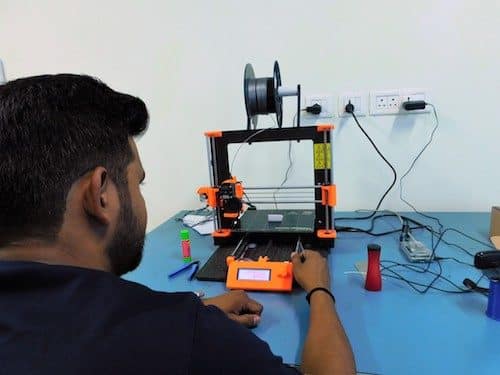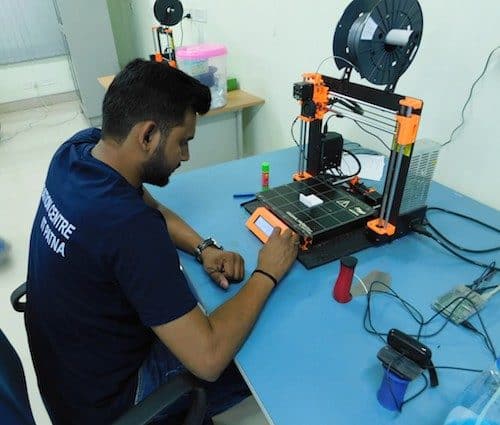Since the invention of various methods to create a 3D model by adding material layer by layer, by inventors like Hideo Kodama, Chuck Hull and S. Scott Crump in the early 1980’s, 3D printing steadily made inroads into prototyping and manufacturing. Considered initially as an option only for prototyping with plastic materials, this technology has developed into Additive manufacturing methods for industry scale production with varying materials from polymers to metals.
As 3D printers have become more versatile and affordable, it became a favorite rapid prototyping tool for enthusiasts and serious users alike. 3D Printers enable the users to visualize a 3D model very quickly and inexpensively. It eliminates the need for costly equipment, costly materials and expert workmanship and tools. If one can design an 3D model, he can make it too without hassles. These aspects of reducing the time and cost and simplifying the skills required for prototyping are precisely the objectives of rapid prototyping.

One of the biggest beneficiaries of this technology are startup companies who are attempting to create devices or hardware products. Cash-strapped and lacking in comprehensive skills for developing casing or parts with the help of conventional subtractive methods, getting their prototypes right and ready in time becomes one of the biggest bottlenecks for many device/Hardware based startups. The funding will last only for a few quarters and any delays in failing fast in their design (so that they can get it right within a reasonable time frame) can jeopardize their business viability. Access to a 3D printer in such circumstances greatly enhances their ability to realize and revise their designs in a short span of time at an affordable cost.
Some incubators also have paid attention to these developments and have taken initiatives to get these facilities for their Incubates. Incubation centre of IIT Patna also known as IC IITP, for example, has been exposed to the benefits of these technology from its inception. Seeing 3D printers in action at IIT Patna and realizing its benefits, the Centre has acquired 3D printers with varying capabilities for its Mechanical Packaging and Product Prototype Lab in addition to traditional subtractive method tools.
The Mechanical Packaging and Product Prototype lab at IC IITP enable the incubated companies of IC IITP to design and develop 3D model of their product. Being an ESDM (Electronics System Design and Manufacturing) incubator, this is very important as the design of the PCB also is impacted by the right design of the packaging. The shape of product, position of buttons, power supply, heat sink, battery casing etc has be designed and prototyped. It is also important to verify the visual feel and usability aspects of the product with the help of a prototype to get the final product ready.

The lab has been helpful in components prototyped as well, which was not it’s original objective. One of the companies incubated in IC IITP had requirements to prototype various small components which goes inside its product. The 3D printers in Mechanical Packaging and product prototype labs was very handy in dealing with this requirement which otherwise would have taken much time and cost for the company.
The Mechanical Packaging and Product Prototype lab at IC has printers that supports various materials such as ABS, PLA, HIPS, PET, FLEX, PP and Nylon. The printers support various print speeds as per the requirement ranging from 10mm/s to 100mm/s. The Lab supports prototyping of 3D of objects which are as small as <1cm3> to <10,500 cm3>
“The 3D printers in mechanical packaging Lab were beneficial to Robo Bionics developing 3D Printed prosthetic arms. They were able to test and validate different ideas like selection of materials as well as critical design changes in a matter of days. The 3D printing of designs also aids in visualizing complex designs supporting fine tuning for Product Design early on”.
Incubation Centre IIT Patna is funded by MeitY, Government of India and Goverment of Bihar. The centre accepts business proposals for incubation in the field of both ESDM and Medical Electronics. The proposals can be submitted throughout the year in these e-mail ids. [email protected] / [email protected] . IC is reachable in these number +91-612-3028545/3028546/3028547 For more detail please visit the website.





